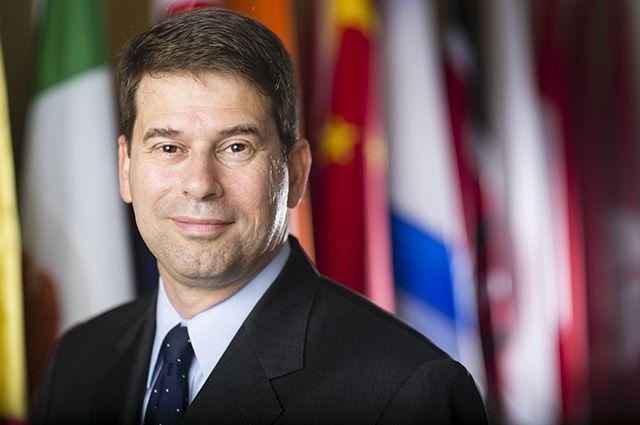-

Hear from Professor Monica Toft
Learn how Professor Monica Toft is shaping the study of global affairs and diplomacy at Fletcher.
Hear from Prof. Toft -

Explore Fletcher academics in action
Fletcher Features offers insights, innovation, stories and expertise by scholars.
Get global insights -
Get application tips right from the source
Learn tips, tricks, and behind-the-scenes insights on applying to Fletcher from our admissions counselors.
Hear from Admissions -

Research that the world is talking about
Stay up to date on the latest research, innovation, and thought leadership from our newsroom.
Stay informed -
Meet Fletcherites and their stories
Get to know our vibrant community through news stories highlighting faculty, students, and alumni.
Meet Fletcherites -

Forge your future after Fletcher
Watch to see how Fletcher prepares global thinkers for success across industries.
See the impact -

Global insights and expertise, on demand.
Need a global affairs expert for a timely and insightful take? Fletcher faculty are available for media inquiries.
Get in Touch
The climate change bargaining game
Dan Drezner weighs the pros and cons of getting large developing countries to adopt environmental policy shifts, via his op-ed in The Washington Post.

On the eve of President Biden’s virtual environment summit, Brazil has approached the United States with an offer it can’t refuse.
The Wall Street Journal’s Paulo Trevisani and Timothy Puko reported on Wednesday that “Brazil’s government, widely criticized by environmental groups as a negligent steward of the Amazon rainforest, has made an audacious offer to the Biden administration: Provide $1 billion and President Jair Bolsonaro’s administration will reduce deforestation by 40%.” The Bolsonaro government suggests that this is the best way to incentivize residents of the Amazon to pursue economic activities that do not require, you know, burning the Amazon.
There are a couple ways of looking at this from the U.S. perspective. One is that this is the Coase Theorem in action. Brazil has property rights over the rainforest, and it is in U.S. climate change interests to pay the billion dollars to reduce deforestation by that much. Given the historical responsibility of the United States in contributing to global warming, this seems like a lot of bang for the buck. As NBC News’s Benjy Sarlin tweeted, this “seems like a bargain,” given the cost of domestic climate change initiatives.
Another way is that in agreeing to pay, Biden could be running into a moral hazard problem. The Bolsonaro government allowed Amazon deforestation to increase by 9.5 percent last year, a 12-year high. Paying the populist would just incentivize even more perverse bargaining behavior.

